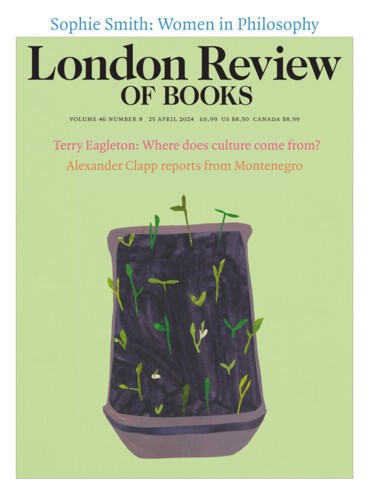Diary: In the Amazon
Alexander Clapp, 5 February 2026
Two thousand miles north-west of Rio de Janeiro, the Javari Valley is a swathe of the Brazilian Amazon larger than Scotland and accessible only by boat or helicopter. Its ecological riches and isolated tribes – sixteen known groups, the largest concentration of uncontacted peoples on earth, with drones intermittently detecting the vestiges of other tribes – have tempted...





